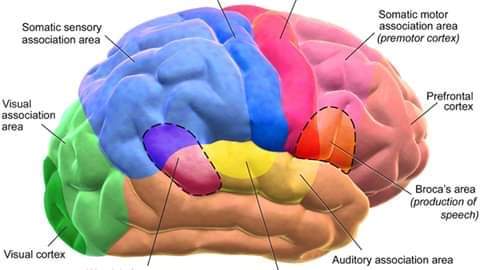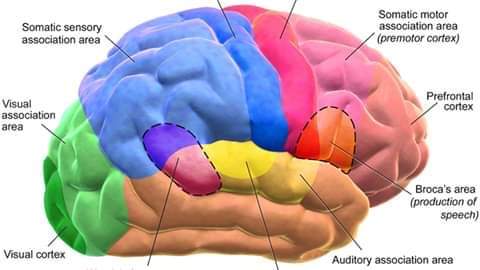
Damilola Agbola, a mental health advocate and sufferer of schizophrenia, (a mental health condition) characterised by abnormal interpretation of reality has called on parents to bridge the communication gap with their wards to avert the menace of diverse social vices like bad peer influence and drug abuse, among others.
Agbola who felt the need to educate people from his own experience said that his going into drugs, which is the cause of his mental health condition, as large as a result of the communication gap between him and his parents while growing up, even though it was a matter of choice.
According to him, he grew up to realise the communication barrier that existed between him and his parents was born out of the fact no one was ready to listen to him at home or give him the attention to share or bare his mind.
The Chemistry graduate of the University of Ilorin, who was diagnosed in 2010 while still in school explained that no one forced him into doing drugs, and it was a matter of choice for him, but the reason he kept bad company that led him to the act was that unlike his parents, his friends were always available to listen to him and give counsel on challenging issues. “Growing up as a kid, it was hard to relate with my parents, I couldn’t find a chance with them, so I gave up trying.”
He said that even though he won’t describe the relationship between him and his parents as not cordial after the incidence, “but I still can’t communicate deep things on my mind to them because I am not used to it, so I can’t even say they know who I am since there is a difference between talking and communicating.”
“It’s very difficult at this point in time and that is why I am urging parents to establish communication lines with their wards from when they are young because it can avert so many ills,” Agboola added.
He recalled how his experience at the psychiatric hospital aided his abstinence from drugs, and how his exposure to the ruined lives of other addicts frightened and called him to caution, which informed his decision to be an advocate after coming out.
Studies have shown that lack of communication between parents and children results in the generation gap, as the time for communication is insufficient because the majority of parents spend too little time listening to their children, even though they love them very much.
This has been attributed to parents’ heavy workload and inevitable stress faced at workplaces, as well as long working hours. Most parents, in spite of their great sacrifices, to earn a living; their children are being neglected because the pressure to strike a balance between work and family is too much.
This is evidenced in a survey that revealed that 67 per cent of parents in Hong Kong work overtime and has been established to have a direct cause to communication between children and their parents, which has further widened the generation gap.

Children now seldom have the opportunity to share their school lives or other day-to-day events with their parents, which is a major cause of communication barriers in the family.
Meanwhile, Founder and Project Director of Regalo Hope Foundation, a charity Non-Governmental Organisation, Chinenye Onuorah, remarked that the communication gap between children and parents is a big cause of children’s involvement in many social vices because the society has become rather dangerous.
She explained how the society’s mentality of always listening to adults has affected so many children, as they begin to see their parents as lesser gods and scared to even talk to them, how much more confide in them.
The Regalo boss highlighted the importance of why the elders must now begin to listen to the younger ones and become their best friends through communication because the world is changing, and more so the social landscape of childhood has changed, “If your children don’t have the comfort to confide in you at home and you push them out to those who would listen, possibilities are that they are badly influenced and wrongly informed.”
Onuorah, at one of her Programmes tagged “Bridging Communication Gap Between Children and Parents,’’ observed that the campaign must be taken seriously as she discovered the phenomenon was partly responsible for the increase of wayward children on the street. “So we came to the conclusion that if we can tackle moral values through parents and children communication, issues of social vices can be cut down, hence the education of parents on the importance and need to bridge that gap.”
She cited that in the course of their work, they found out some mothers are ignorant about their female children’s menstrual periods and some don’t even know when they started, which she described as very bad.
Emphasising the role of communication at home, Princess Ahiri Akran, an Educator stressed that the primary learning environment for children is at home, hence the “sooner we realised our responsibilities as parents the better.”
To this effect, there is a need for parents to know and understand their children’s psychology because different things work for every child, so one’s character shouldn’t be used to judge the other, as one must identify with antecedents pushing their behaviours and consequently the reaction from them.
Akran said; “If your child’s reassurance is from the number of likes she gets on social media, and she puts everything online to meet people of similar thought who can listen and influence either way, then there is a problem.
“Most of us parents have misplaced the place for communication especially between the home and school, therefore the problem must be nipped in the bud from the root when they are young,.’’ Children ought to be able to relate with parents, you must act like a child to get into their minds, for them to be psychologically comfortable to open up.
There must be a connection, she noted, because some parents are seen as small gods by their wards and others have replaced their roles with social media because parents are not available to monitor them.
Agbola, who considers himself lucky to have a job as a voice actor, even as he has to manage his mental health condition over time, which means being on medication for life.
He canvassed the need for serious awareness and advocacy because often, parents overlook it and when it’s too late it becomes hard to arrest. “It was shocking to know that even when my friends knew the cause of my condition, they never stopped doing hard drugs,’’ he added.








